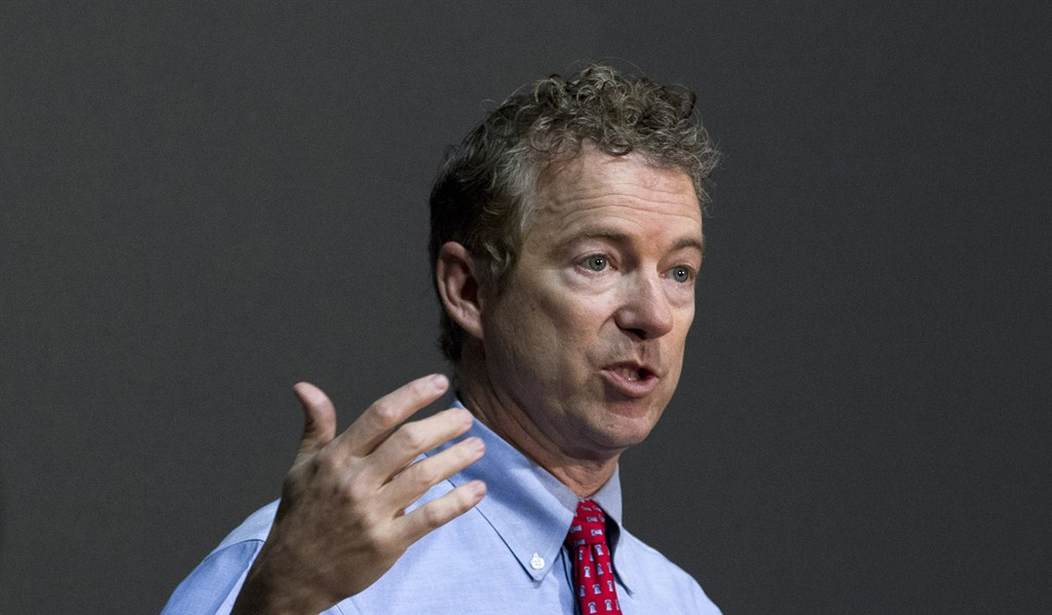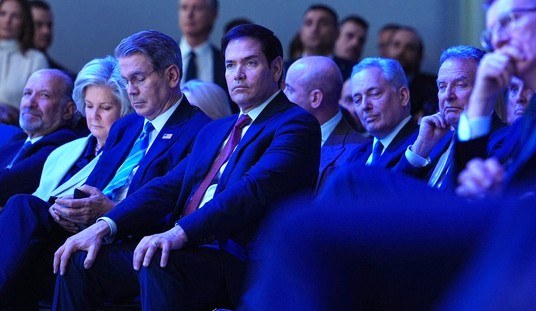Libertarianism no longer seriously can be considered marginal. It has emerged as an important part of our public discourse.
Sen. Rand Paul writes, “They say the libertarian moment has arrived. If you want to understand and be part of that moment, read David Boaz’s The Libertarian Mind where you’ll be drawn into the ‘eternal struggle of liberty vs. power,’ where you’ll learn that libertarianism presumes that you were born free and not a subject of the state.”
There remains a great deal of confusion in the public consciousness. As (then) Texas GOP Chairman Steve Munisteri said to Ryan Lizza of The New Yorker, “[Rand] Paul should stop calling himself a libertarian. ‘I know he just means that he likes to protect individual freedoms, but that’s not what it means down here,’ he said, referring to Texas. ‘They think it means you’re going to legalize heroin.’”
David Boaz, gentleman and scholar and long time friend, has picked a great time to help clarify libertarianism and define it with his revised and retitled book The Libertarian Mind: A Manifesto For Freedom.
This manifesto is described by the Cato Institute:
Libertarianism — the philosophy of personal and economic freedom — has deep roots in Western civilization and in American history, and it’s growing stronger. Two long wars, chronic deficits, the financial crisis, the costly drug war, the campaigns of Ron Paul and Rand Paul, the growth of executive power under Presidents Bush and Obama, and the revelations about NSA abuses have pushed millions more Americans in a libertarian direction.The Libertarian Mind, by David Boaz, the longtime executive vice president of the Cato CATO +0.37% Institute, is the best available guide to the history, ideas, and growth of this increasingly important political movement.
Once upon a time conservatism, too, was a tiny, marginal, and not very influential school of thought. One of the breakthroughs that helped change all that was a book by Russell Kirk. Its title: The Conservative Mind. One of the founders of the modern conservative movement, Dr. Lee Edwards, wrote for the Heritage Foundation in The Conservative Mind of Russell Kirk:
Recommended
In the early 1950s, intellectuals on both the Right and the Left, who were at odds about almost everything, agreed on one thing: Conservatism as a defined philosophy and movement scarcely existed in America.
Respected intellectuals on the Left such as Lionel Trilling argued that modern “liberalism is not only the dominant but even the sole intellectual tradition” in the United States. While conceding that a conservative or a reactionary impulse existed here and there, Trilling said that with few exceptions, conservatives expressed themselves not in ideas but in “irritable mental gestures which seek to resemble ideas.”
Harvard historian Louis Hartz declared that “we have never had a real conservative tradition.” Others, like Harvard historian Arthur Schlesinger, Jr.,were pleased to foretell the political future of America: “There seems no inherent obstacle to the gradual advance of socialism in the United States through a series of New Deals.”
…
Thinkers on the Right lamented the condition of conservatism and the seemingly irresistible tides against it. To many, like F. A. Hayek, it seemed as if the whole world was turning Left. Seeking support for his new conservative magazine, William F. Buckley Jr. conceded that the Left easily dominated the realm of ideas in America and that “the few spasmodic victories conservatives are winning are aimless, uncoordinated, and inconclusive.”
There the matter might have rested, with liberals gloating and conservatives lamenting, except for the publication of a remarkable book by a young assistant professor of history at a Michigan “cow college.” The unknown historian was Russell Kirk; the book was The Conservative Mind: From Burke to Santayana (1953);and modern American conservatism has never been the same.
The days of irrelevance for conservatism and libertarianism are long gone. Libertarianism is gaining both in popularity and stature. The Libertarian Mind belongs in the canon with the writings of Nozick, Hayek, and Epstein. A quintessential sample of Boaz in his own words:
Lots of political movements promise utopia: Just implement our program, and we’ll usher in an ideal world. Libertarians offer something less, and more: a framework for utopia, as Robert Nozick puts it.
My ideal community would probably not be your utopia. The attempt to create heaven on earth is more likely to produce hell, because we have different ideas of what heaven would be like. As our society becomes more diverse, the possibility of our agreeing on one plan for the whole nation becomes even more remote. And in any case, we can’t possibly anticipate the changes that progress will bring. Utopian plans always involve a static and rigid vision of the ideal community, a vision that can’t accommodate a dynamic world. … A libertarian society is only a framework for utopias. In such a society, government would respect people’s right to make their own choices in accord with the knowledge available to them. As long as each person respected the rights of others, he would be free to live as he chose.
As it happens, long ago conservatism and libertarianism came to an intermittently tense but mostly happy modus vivendi, challenging and strengthening both. The rapprochement came about primarily thanks to National Review’s Frank Meyer. Meyer postulated, and brought forth upon this continent, a new doctrine. He called it “Fusionism,” wherein, to oversimplify, conservative ends are to be achieved by libertarian means.
As contemporary conservative pillar Donald Devine wrote, last November, in The Federalist:
Reagan identified his philosophy with the great Western tradition especially as elaborated by the conservative theorist Frank S. Meyer, who “in his writing fashioned a vigorous new synthesis of traditional and libertarian thought—a synthesis that is today recognized by many as modern conservatism.”
[Reagan stated:] “It was Frank Meyer who reminded us that the robust individualism of the American experience was part of the deeper current of Western learning and culture. He pointed out that a respect for law, an appreciation of tradition, and regard for the social consensus that gives stability to our public and private institutions, these civilized ideas must still motivate us even as we seek a new economic prosperity based on reducing government interference in the marketplace.”
The dynamic relationship between conservatism and libertarianism is vital to the health of both. Devine captures this not-for-the-faint-of-heart dynamic neatly: “Under that higher law, a free human rationality wrestles with a complex tradition of values that requires a synthesis of ideas and institutions to discover the best practical resolution.”
Boaz’s manifesto for freedom presents as the contemporary gold standard of the libertarian creed. I, as a classical liberal, lean more conservative than libertarian. I, too, am disposed against Big Government but generally am more favorable toward government than are such ur-libertarians as Boaz. That said, the philosophy of “live and let live,” which might serve well as any libertarian's bumper sticker, and as extolled in The Libertarian Mind: A Manifesto For Freedom, has much to recommend it.

























Join the conversation as a VIP Member